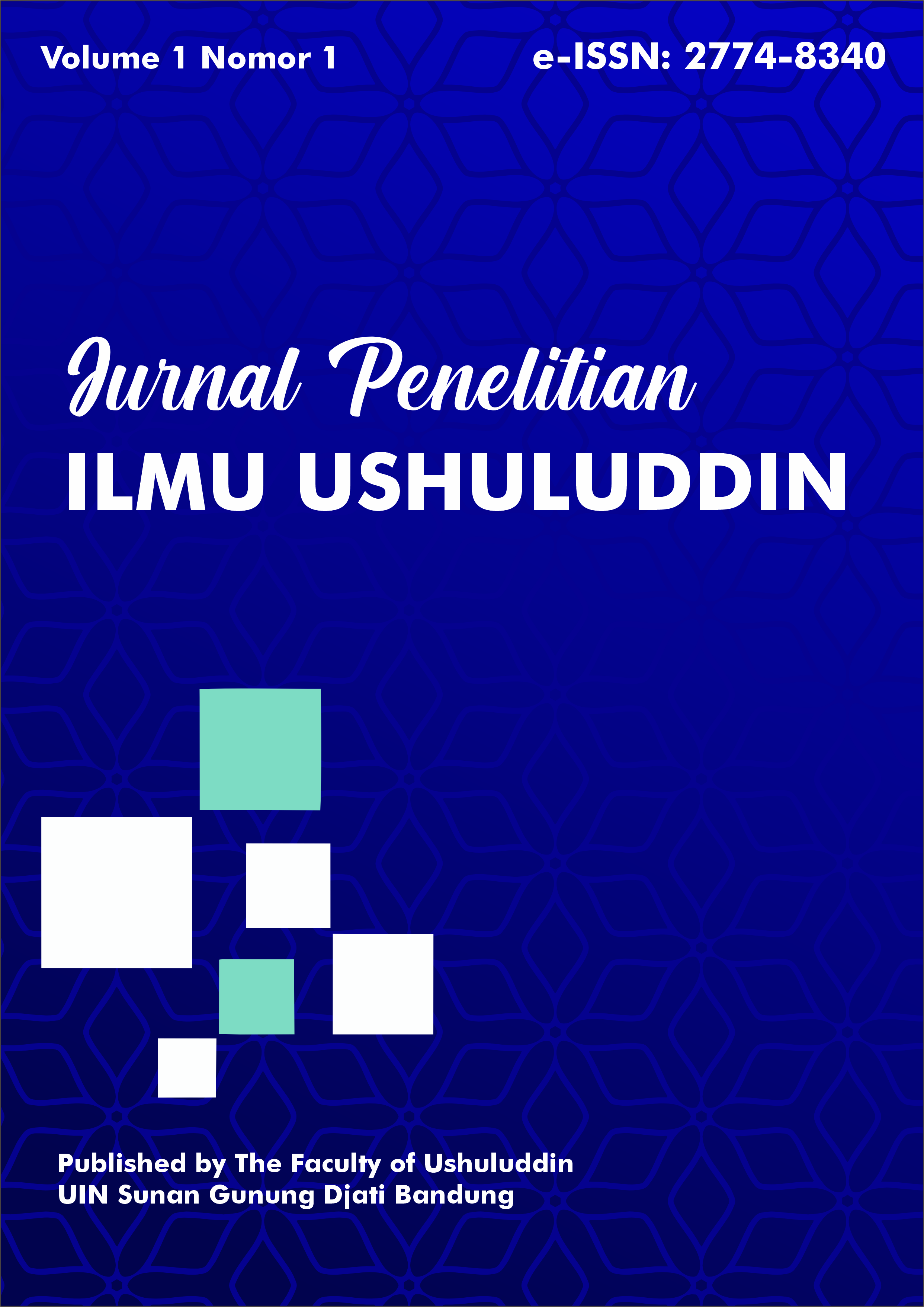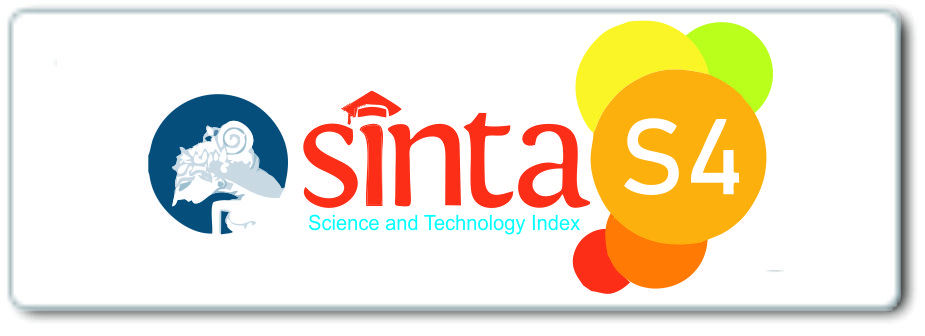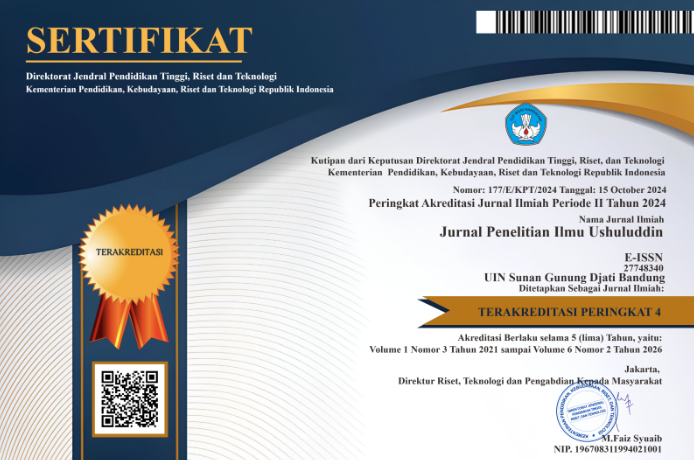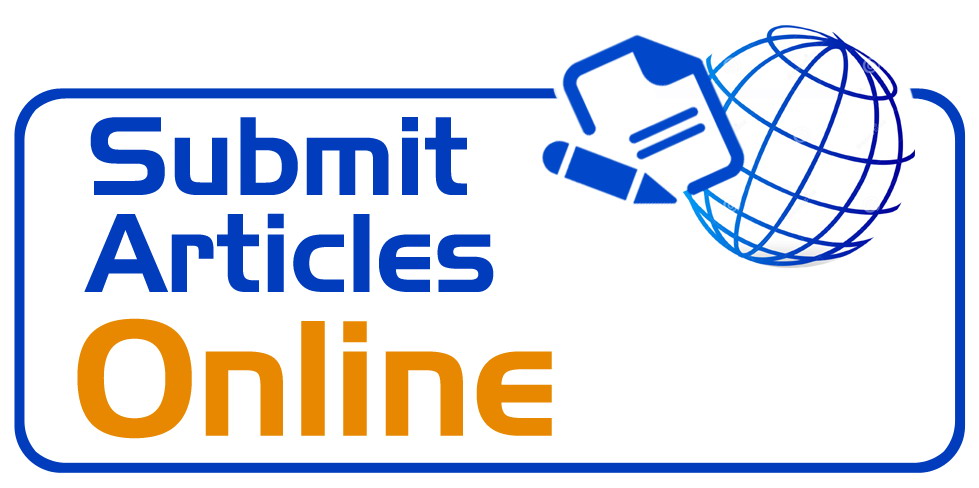Etika Guru dalam Pengajaran di Lembaga Pendidikan Islam (Studi Kasus di Madrasah Aliyah Negeri 2 Kota Bandung)
DOI:
https://doi.org/10.15575/jpiu.43201Keywords:
Education, Madrasah Aliyah, Student Character, Teacher Ethics, TeachingAbstract
This study was conducted with the aim of exploring the role of teacher professional ethics in the teaching process at Madrasah Aliyah Negeri 2 Bandung City. The main focus of this study is to understand how the application of teacher ethics can influence the dynamics of learning and the formation of student character. Teacher ethics include moral responsibility in educating, shaping student behavior, and creating a conducive learning environment. To achieve this goal, a philosophical approach with qualitative methods was used. Data were obtained through in-depth interviews with the principal, Akidah Akhlak teachers, and students to obtain an in-depth perspective on the application of teacher ethics in learning activities. The results of the study revealed that teacher ethics have a significant contribution in creating a positive learning atmosphere. Teachers who consistently carry out moral responsibility are able to build trust, increase student motivation, and create harmonious interactions in the educational environment. The presence of ethical teachers is also a role model for students in developing good attitudes and behaviors. Based on these findings, the study recommends the need for further studies related to the application of teacher ethics at various levels of education. The study is expected to broaden insight and support the development of ethics-based education policies, so as to improve the quality of learning in madrasas and other educational institutions.
References
Aflahah, S., Nisa, K., & Aldeia, A. S. (2023). The Role of Education in Strengthening. SMaRT, 193-211. doi:https://doi.org/10.18784/smart.v9i2.2079
Alwis, D. A., & Hendriani, S. (2024). PENGARUH ETIKA KEPEMIMPINAN TERHADAP KINERJA GURU DI MAN 2 SIJUNJUNG. Indo-Fintech Intellectuals: Journal of Economics and Business, 947-954. doi:https://doi.org/10.54373/ifijeb.v4i3.1439
Andriyani, N. (2023). Pengelolaan Pembelajaran Akidah Akhlak di MAN Pematangsiantar. JURNAL MANAJEMEN AKUNTANSI, 1264-1276. Retrieved from http://repository.umsu.ac.id/handle/123456789/21923
Arianda, M., Derta, S., Okra, R., & Musril, H. A. (2024). Perancangan Media Pembelajaran Akidah Akhlak Berbasis Android Menggunakan Kodular Di MAN 4 Agam. Jurnal Pendidikan Teknologi Informasi dan Komunikasi, 55-68. doi:https://doi.org/10.31980/petik.v10i1.560
Bahri, S. (2022). Pendidikan Akhlak Anak dalam Perspektif Imam Al-Ghazali. At-Tadzkir: Islamic Education Journal, 3-41. doi:https://doi.org/10.59373/attadzkir.v1i1.6
Bakhtyar, M. Z. (2012). Pembentukan Karakter Siswa Melalui Kegiatan Keagamaan Di Madrasah ALiyah Negri (MAN). Skripsi. Retrieved from http://etheses.uin-malang.ac.id/41301/1/08110193.pdf
Darmalaksana, W. (2020). Metode Penelitian Kualitatif Studi Pustaka dan
Studi Lapangan. Pre-Print Digital Library UIN Sunan Gunung Djati
Bandung, 1–6.
Fahruddin, A. H., & Sari, E. N. (2020). IMPLEMENTASI KODE ETIK GURU DALAM PEMBELAJARAN PENDIDIKAN AGAMA ISLAM DI SMA NEGERI 1 SUKODADI LAMONGAN. Tarbiyatuna: Jurnal Pendidikan Islam, 151-169. doi:https://doi.org/10.36835/tarbiyatuna.v13i2.643
Fitriani, N. I., Bahar, D. H., & Nurmalia., L. (2020). KOMPETENSI ETIKA GURU DALAM PROSES PEMBELAJARAN. In s t r u k s i o n a l, 70-75. doi:https://doi.org/10.24853/instruksional.2.1.70-75
Haningsih, S. (2014). Implementasi Program Mutu Pendidikan Dalam Meningkatkan Budaya Akademik di Madrasah Aliyah Sunan Pandanaran (MASPA) Sardonoharjo Ngaglik Sleman DIY. EL-TARBAWI, 27-40. doi:https://doi.org/10.20885/tarbawi.vol7.iss1.art3
Harun, C. Z. (2013). MANAJEMEN PENDIDIKAN KARAKTER. Jurnal Pendidikan Karakter, 302-307. doi:https://doi.org/10.21831/jpk.v0i3.2752
Haryanti, N. (2013). IMPLEMENTASI PEMIKIRAN KH. HASYIM ASY’ARI TENTANG. Epistemé, 399-450. Retrieved from https://ejournal.uinsatu.ac.id/index.php/epis/article/view/54/49
Hidayat, R., & Abdurrahman. (2022). Kompetensi Guru Mata Pelajaran Aqidah Akhlak pada Madrasah Aliyah Negeri 2 Barito Kuala. Jurnal Ilmiah Keagamaan, Pendidikan dan Dakwah, 1-19. Retrieved from https://jurnal.staialjami.ac.id/index.php/Al_JAMI/article/download/119/82
Hidayat, R., & Ningsih, T. (2022). Pentingnya Interaksi Edukatif Pendidik (Guru) Dalam Upaya Pembentukan Akhlak Peserta Didik Di Sekolah (Study Mata Pelajaran Akidah Akhlak di MAN 1 Banyumas). Jurnal Pendidikan dan Konseling, 8288-8295. doi:https://doi.org/10.31004/jpdk.v4i6.9641
Ibrahim, Mujahidin, E., & Saefuddin, D. (2014). ANALISIS KOMUNIKASI PEMBELAJARAN DI LEMBAGA PENDIDIKAN ISLAM(STUDI KASUS DI MANKABUPATEN KARAWANG). Ta'dibuna, 122-140. doi:https://doi.org/10.32832/tadibuna.v3i2.567
Ifnaldi, & Andani, F. (2021). Etika & Profesi Keguruan. Bengkulu: Andhra Grafika.
Koesoema, D. (2012). Pendidikan Karakter Utuh dan Menyeluruh. Yogyakarta. Retrieved from https://www.google.com/books?hl=id&lr=&id=x4feEAAAQBAJ&oi=fnd&pg=PP1&dq=pendidikan+karakter&ots=Ba62j3u2Gu&sig=qhVPB9pok6XXqg9JS5gD1kqR4kk
Lestari, A. (2023). Strategi Guru Mata Pelajaran Akidah Akhlak dalam Menanamkan Nilai Karakter Kejujuran dan Disiplin Siswa di MAN 2 Kota Bengkulu. Al-Bahtsu, 1-8. doi:http://dx.doi.org/10.29300/btu.v8i1.5275
Munir. (2015). ETIKA GURU DALAM PEMBERDAYAAN PEMBELAJARAN. Jurnal Studi Islam, 30-38. doi:https://doi.org/10.15642/jpai.2016.4.2.271-292
Novianti, R. (2019). PENGARUH LINGKUNGAN BELAJAR TERHADAP TINGKAT KONSENTRASI BELAJAR SISWA PADA MATA PELAJARAN AKIDAH AKHLAK DI MAN 2 PALEMBANG. Jurnal PAI Raden Fatah, 2-18. Retrieved from https://jurnal.radenfatah.ac.id/index.php/pairf/article/view/3010/2052
Nugraha, M. (2018). MANAJEMEN KELAS DALAM MENINGKATKAN PROSES PEMBELAJARAN. Tarbawi, 7-44. Retrieved from ttp://jurnal.uinbanten.ac.id/index.php/tarbawi
Nugraha, M. S. (2015). Pelaksanaan Supervisi Akademik oleh Kepala Madrasah Aliyah Swasta di Kabupaten Sukabumi Jawa Barat. Nadwa, 39-68. doi: 10.21580/nw.2015.9.1.520
Nurasia, Syarifahhuriyah, & Rosdiana. (2023). Etika Kepribadian dan Kode Etik Guru dalam Pembelajaran di Sekolah. Jurnal Studi Keagamaan Islam, 41-47. Retrieved from https://www.researchgate.net/publication/377322067_Etika_Kepribadian_dan_Kode_Etik_Guru/fulltext/659fe9abaf617b0d873be8b2/Etika-Kepribadian-dan-Kode-Etik-Guru.pdf
Nurfuadi. (2023). Manajemen Kompetensi Profesional Guru Akidah Akhlak di Madrasah Aliyah Al-Ikhsan Beji Kedungbanteng. Journal on Education, 3978-3983. Retrieved from http://jonedu.org/index.php/joe
Qomari, R. (2009). Prinsip dan Ruang Lingkup Pendidikan Aqidah Akhlaq. Insania, 1-16. Retrieved from https://www.researchgate.net/publication/325316382_Prinsip_dan_Ruang_Lingkup_Pendidikan_Aqidah_Akhlaq/fulltext/5b055dfc4585157f87090f7c/Prinsip-dan-Ruang-Lingkup-Pendidikan-Aqidah-Akhlaq.pdf
Qonitatillah, S., Hanief, M., & Hakim, D. M. (2024). IMPLEMENTASI PENDIDIKAN AKHLAK UNTUK MENINGKATKAN ETIKA KOMUNIKASI SISWA. VICRATINA, 13-24. Retrieved from https://jim.unisma.ac.id/index.php/fai/article/view/24542
Rohmah, R. Z., Asikin, I., & Sobarna, A. (2024). STRATEGI MADRASAH ALIYAH AL-HIDAYAH IBUN DALAM MEMBANGUN ETIKA KOMUNIKASI MURID KEPADA GURU. Ta’dib, 69-76. Retrieved from https://ejournal.unisba.ac.id/index.php/tadib/article/view/13587
Rusmin, M., Abidin, N. A., & Mosiba, R. (2022). IMPLEMENTASI KODE ETIK GURU DALAM PROSES PEMBELAJARAN DI MAN 1 SOPPENG. Jurnal Inspiratif Pendidikan, 150-164. doi:https://doi.org/10.24252/ip.v11i1.30089
Sabariah, H., Ridha, Z., Ritonga, L. A., & Nurhayati. (2021). ETIKA PEMBELAJARAN MENURUT IMAM AL GHAZALI RELEVANSINYA PESERTA DIDIK MAN 1 LANGKAT. Ta'dib, 1-6. Retrieved from https://journal.iaintakengon.ac.id/index.php/tdb/article/view/27
Sandria, A., Asy’ari, H., Fatimah, F. S., & Hasanah, M. (2022). Pembentukan Karakter Religius Melalui Pembelajaran Berpusat pada Siswa Madrasah Aliyah Negeri. At-Tadzkir: Islamic Education Journal, 63-75. doi:https://doi.org/10.59373/attadzkir.v1i1.9
Sarjana, S. (2014). Kontribusi Kepemimpinan dan Kerja sama TIM Terhadap Etika Kerja Guru. Paedagogia, 78-93. Retrieved from http://jurnal.fkip.uns.ac.id/index.php/paedagogia
Sarjana, S., & Khayati, N. (2016). PENGARUH ETIKA, PERILAKU, DAN KEPRIBADIAN TERHADAP INTEGRITAS GURU. Jurnal Pendidikan dan Kebudayaan, 379-393. doi:https://doi.org/10.24832/jpnk.v1i3.450
Seknun, M. Y. (2012). Kedudukan Guru Sebagai Pendidik. Lentera Pendidikan, 120-131. Retrieved from https://journal.uin-alauddin.ac.id/index.php/lentera_pendidikan/article/view/1650
Sidiq, U. (2018). Etika & Profesi Keguruan. Tulungagung: STAI Muhammadiyah Tulungagung.
Tanyid, M. (2014). ETIKA DALAM PENDIDIKAN: KAJIAN ETIS TENTANG KRISIS MORAL. JAFFRAY, 235-250. Retrieved from https://ojs.sttjaffray.ac.id/JJV71/article/download/13/18
Tsauri, S., & Mutohar, A. (2015). PENDIDIKAN KARAKTER Peluang dalam Membangun Karakter Bangsa. Jember: IAIN Jember Press.
Zacky, A. (2016). KODE ETIK GURU DALAM MENINGKATKAN PROFESIONALISME PENDIDIK; REAKTUALISASI DAN PENGEMBANGAN KODE ETIK GURU DI MADRASAH ALIYAH DARUL AMIN PAMEKASAN. Jurnal Pendidikan Agama Islam, 272 - 292. doi:http://dx.doi.org/10.15642/jpai.2016.4.2.271-292
Downloads
Published
Issue
Section
License
Copyright (c) 2025 Silviana Putri, Mulyawan Safwandy Nugraha

This work is licensed under a Creative Commons Attribution-ShareAlike 4.0 International License.
Authors who publish in Jurnal Penelitian Ilmu Ushuluddin agree to the following terms:
- Authors retain copyright and grant the journal right of first publication with the work simultaneously licensed under an Attribution-ShareAlike 4.0 International (CC BY-SA 4.0) License that allows others to share the work with an acknowledgment of the work's authorship and initial publication in this journal.
- Authors are able to enter into separate, additional contractual arrangements for the non-exclusive distribution of the journal's published version of the work (e.g., post it to an institutional repository or publish it in a book), with an acknowledgment of its initial publication in this journal.
- Authors are permitted and encouraged to post their work online (e.g., in institutional repositories or on their website) prior to and during the submission process, as it can lead to productive exchanges, as well as earlier and greater citation of published work (See The Effect of Open Access).












